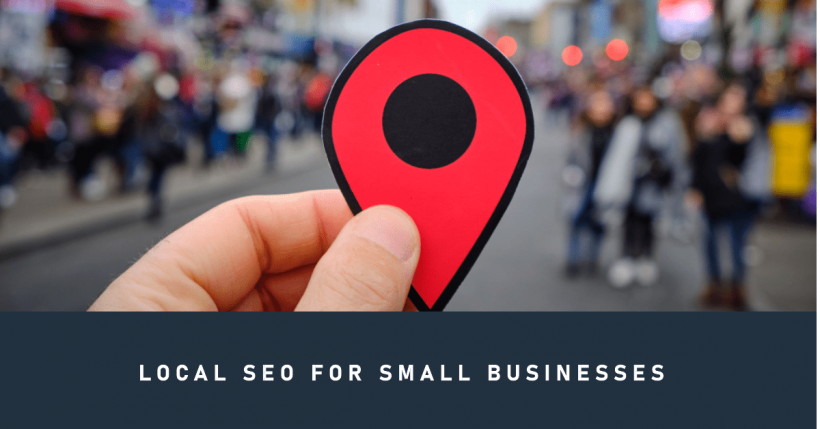
Local SEO helps small businesses appear in search results for local customers. Optimizing your online presence can increase visibility and drive more sales. This guide covers essential local search engine optimization tips and strategies for small business owners.
Key Takeaways:
- Learn why local SEO matters for small companies
- Optimize your Google Business Profile for local search
- Discover on-page SEO tips for improving local rankings
- Understand the importance of local content and link-building
- Find tools and resources for managing your local SEO efforts
Local SEO for Small Businesses
Local SEO focuses on optimizing your online presence for local search results. It helps your business appear when people search for products or services in your area.
Local SEO is different from traditional SEO in a few key ways:
- It targets specific geographic locations, like cities or regions
- It involves optimizing for local factors, like Google My Business Profile
- It relies heavily on local citations and reviews
The benefits of local optimization for small businesses are significant:
- Increased visibility in local search ranking
- More targeted traffic from potential customers in your area
- Higher conversion rates
- Improved online reputation and trust within your community
Set Up Your Google My Business Profile
Google Business Profile (GBP) is a free tool for local businesses. It helps you manage how your business appears on the local map pack. The first step is to claim and verify your GBP listing.
To optimize your GBP:
- Provide accurate and complete business information (name, address, phone number, hours, etc.).
- Choose the proper business categories that describe what you do.
- Write a compelling business description that includes relevant keywords.
- Add high-quality photos and videos showcasing your products, services, and location.
- Encourage satisfied customers to leave reviews on your GBP listing.
Responding to customer reviews shows that you value their feedback. It also helps build trust and credibility with potential clients. Monitor your reviews regularly and respond promptly, especially to negative ones.
GBP posts are another way to engage with your audience. Share updates, special offers, events, and new products or services. Posts can include text, photos, and call-to-action buttons.
Regularly updating your GBP business listing with fresh content keeps it relevant. It can also improve your local rankings. Moz Local helps manage your GBP and other local listings.
Optimize your Google Business Profile to increase your visibility in local organic search results. This helps attract more qualified leads and customers to your small business.
On-Page SEO Tips for Local Businesses
Optimizing your website’s title tags and meta descriptions for local keywords is crucial. Include your city, state, or region in these elements to signal relevance to search engines.
Creating local content, such as city or region-specific pages and blog posts, can also boost your local SEO. This content should be informative, engaging, and tailored to your local audience.
Using schema markup helps provide search engines with clear information about your business. This structured data can include your NAP details, business hours, and customer reviews.
Ensuring your website is mobile-friendly and loads quickly is essential for local SEO. Many regional searches occur on mobile devices, so a responsive design and fast loading times are key.
Other on-page SEO tips for local businesses include:
- Adding keywords naturally throughout your website content
- Using your images with local keywords in the file names and alt tags
- Creating a clear and intuitive site structure with local landing pages
- Incorporating local testimonials and case studies to build trust and credibility
Building Local Citations and Backlinks

Building local citations and backlinks is crucial for small businesses. Citations mention your business name, address, and phone number (NAP) on other websites. Consistent NAP information across the web helps search engines verify your business.
Submit your business to local directories and business listings such as:
- Yelp
- Bing Places
- Apple Maps
- Yellow Pages
- OnToplist
- Industry-specific directories
Partnering with other local businesses can also provide link-building opportunities. Reach out to complementary businesses in your area. Propose cross-promoting each other’s services or products on your websites. This can help boost your local authority and referral traffic.
Participating in local events and sponsorships is another effective way to build local backlinks. Sponsor a local charity event, sports team, or community organization, and request a link to your website on their sponsors’ page. This helps with SEO and increases your visibility and goodwill in the community.
Remember, quality is more important than quantity when it comes to backlinks. Focus on gaining links from reputable, relevant websites in your industry and geographic area.
Creating a Local Content Strategy
Content is key for SEO success. It helps you rank for local phrases and attract nearby customers.
Here are some tips for creating a successful content marketing strategy:
- Identify local keywords relevant to your business and target audience. Use keyword research tools like Google Keyword Planner or Ahrefs.
- Create blog posts, videos, and other content that target these keywords. To make it relevant, focus on local news, events, and landmarks.
- Incorporate your city or region name into content titles and headers. This helps search engines understand your content’s local relevance.
- Use local case studies and customer stories to showcase your expertise. This builds trust and authority with potential customers.
- Promote your content on social media and email newsletters. Engage with local influencers and communities to expand your reach.
- Keep your content fresh and up-to-date with the latest local trends. Regularly update old content with new information and insights.
Monitoring Your Local SEO Performance
Tracking local SEO metrics is essential for measuring success. Use Google Analytics and Search Console to monitor rankings, traffic, and conversions. Set goals to track the effectiveness of your local SEO efforts.
Monitor your online reputation by regularly checking customer reviews. Respond promptly to both positive and negative feedback. This shows that you value your customers’ opinions and care about their experience.
Conduct regular local SEO audits to identify areas for improvement. Check for consistency in NAP information, improve content, and build quality backlinks.
Continuously measure and refine your on-page and off-page SEO strategy based on performance. Adjust tactics as needed to maximize results and stay ahead of competitors.
Local SEO Tools and Resources
Google Business Profile is a free tool for managing your online presence. It lets you update your business info, respond to reviews, and post updates.
Local SEO plugins like Yoast help boost your website’s performance in geo-targeted searches. They guide you on using keywords, schema markup, and other on-page factors.
Moz Local and BrightLocal are paid tools for managing local listings. They help ensure your business info is accurate and consistent across directories.
Yelp, Bing Places, and Apple Maps are popular local business directories. Claiming your listings here can boost your local visibility and rankings.
Many online guides and courses cover local SEO best practices in depth. Look for reputable sources with up-to-date information and actionable tips.
When choosing local SEO tools, consider your budget, technical skills, and goals. Free options are great for getting started, while paid tools offer advanced features.
Check for new local SEO tools and resources regularly. The regional search landscape constantly evolves, so staying informed is key to success.
Conclusion
Local SEO is crucial to grow your business. Get your Google Business Profile and follow the best SEO practices on your website. Build quality backlinks to improve visibility. Create a content strategy incorporating relevant keywords and topics. Monitor your performance using analytics tools. Small companies can drive more customers with the right local SEO strategy.